Organizing Committee
Chair
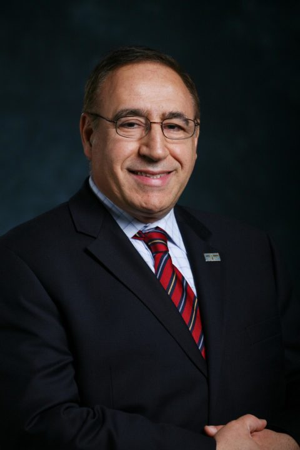
Metin Akay
University of Houston
Metin Akay received his B.S. and M.S. in Electrical Engineering from the Bogazici University, Istanbul, Turkey in 1981 and 1984, respectively, and a Ph.D. degree from Rutgers University in 1990. He also received an honorary Ph.D. from the Aalborg University in 2015. He is currently the founding chair of the new Biomedical Engineering Department and the John S. Dunn professor of biomedical engineering at the University of Houston. He is currently the President-Elect of IEEE Engineering in Medicine and Biology Society.
He has played a key role in promoting biomedical education in the world by writing and editing several books, editing several special issues of prestigious journals, including the Proc of IEEE, and giving several keynotes and plenary talks at international conferences, symposiums, and workshops regarding emerging technologies in biomedical engineering. He is the founding editor-in-chief of the Biomedical Engineering Book Series published by the Wiley and IEEE Press and the Wiley Encyclopedia of Biomedical Engineering. He is also the editor of the Neural Engineering Handbook published by Wiley/IEEE Press and the first steering committee chair of the IEEE Trans on Computational Biology and Bioinformatics.
Co-Chair
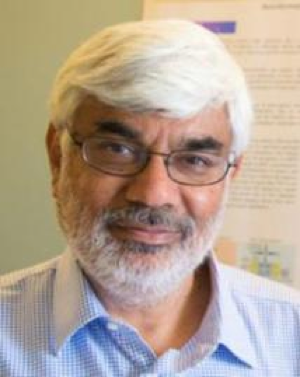
Shankar Subraminiam
University of California, San Diego
Shankar Subramaniam is a Distinguished Professor of Bioengineering, Computer Science and Engineering, Cellular and Molecular Medicine, and Nanoengineering. He is currently the President of IEEE EMBS. He was the Chair of the Bioengineering Department at the University of California at San Diego (2008-13) leading the Department to be ranked first in NRC rankings. He holds the inaugural Joan and Irwin Jacobs Endowed Chair in Bioengineering and Systems Biology. He was the Founding Director of the Bioinformatics Graduate Program at the University of California at San Diego. He is a fellow of the American Institute for Medical and Biological Engineering (AIMBE), American Association for the Advancement of Science (AAAS), and International Federation of Medical and Biological Engineering (IFMBE). Subramaniam is a recipient of the Smithsonian Foundation and Association of Laboratory Automation Awards and his research spans systems biology and medicine. In 2002, he received the Genome Technology All-Star Award. In 2011, he was appointed as a Distinguished Scientist at the San Diego Supercomputer Center. In 2019 he was awarded the of IIT Kanpur Jubilee Year Distinguished Alumni Award. Subramaniam is a pioneer in Systems Biology research. He has published in leading journals such as Nature, Cell, Science family, and in 2008, he was awarded the Faculty Excellence in Research Award at UCSD. His work at the interface of engineering and medicine has impacted several research areas in biomedicine. He has served on several national research advisory councils including the National Institutes of Health.
Program Chair

Paul Sajda
Columbia University
Paul Sajda is a Professor of Biomedical Engineering, Electrical Engineering and Radiology (Physics) at Columbia University. He is also a Member of Columbia’s Data Science Institute and an Affiliate of the Zuckerman Institute of Mind, Brain and Behavior. He received a BS in electrical engineering from MIT in 1989 and an MSE and PhD in bioengineering from the University of Pennsylvania, in 1992 and 1994, respectively. Professor Sajda is interested in what happens in our brains when we make a rapid decision and, conversely, what processes and representations in our brains drive our underlying preferences and choices, particularly when we are under time pressure. His work in understanding the basic principles of rapid decision-making in the human brain relies on measuring human subject behavior simultaneously with cognitive and physiological state. Important in his approach is his use of machine learning and data analytics to fuse these measurements for predicting behavior and infer brain responses to stimuli. Professor Sajda applies the basic principles he uncovers to construct real-time brain-computer interfaces that are aimed at improving interactions between humans and machines. He is also applying his methodology to understand how deficits in rapid decision-making may underlie and be diagnostic of many types of psychiatric diseases and mental illnesses. Professor Sajda is a co-founder of several neurotechnology companies and works closely with a range of scientists and engineers, including neuroscientists, psychologists, computer scientists, and clinicians. He is a fellow of the IEEE, AMBIE and AAAS and Chair of the IEEE Brain Initiative. He is also a recent recipient of the DoD’s Vannevar Bush Faculty Fellowship (VBFF).
Program Co-Chair
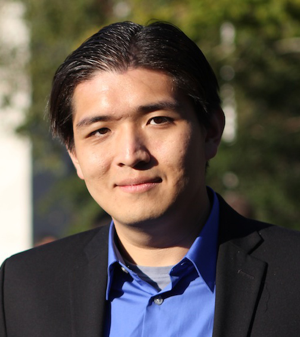
Jack Ming Po
Chairs, Symposium #1

Andrew Laine
Columbia University
Andrew F. Laine received his D.Sc. degree from Washington University (St. Louis) School of Engineering and Applied Science in Computer Science, in 1989 and BS degree from Cornell University (Ithaca, NY). He was a Professor in the Department of Computer and Information Sciences and Engineering at the University of Florida (Gainesville, FL) from 1990-1997. He joined Columbia University in 1997 and served as Vice Chair of the Department of Biomedical Engineering 2003 – 2011, and Chaired of the Department of Biomedical Engineering 2012 – 2017. He is currently the Percy K. and Vida L. W. Hudson Professor of Biomedical Engineering and Professor of Radiology (Physics).
Professor Laine served on the IEEE ISBI (International Symposium on Biomedical Imaging) steering committee, 2006-2009 and 2009 – 2012. He was the Program Chair for the IEEE EMBS (Engineering in Biology and Medicine Society) annual conference in 2006 held in New York City and served as Program Co-Chair for IEEE ISBI in 2008 (Paris, France). He served as Area Editor for IEEE Reviews in BME in Biomedical Imaging since 2007-2013. He was Program Chair for the EMBS annual conference for 2011 (Boston, MA). Professor Laine Chaired the Steering committee for IEEE ISBI, 2011-2013, and Chaired the Council of Societies for AIMBE (American Institute for Medical and Biological Engineers) in 2012-2013. Finally, he served as IEEE EMBS Vice President of Publications 2008 – 2012, and was the President of IEEE EMBS 2015 and 2016. He is currently past-chair of the IEEE EMBS Technical Committee on Biomedical Health Informatics. He is a Fellow of IEEE, AIMBE and IFMBE.
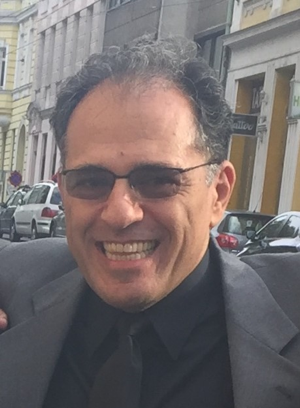
Amir Amini
University of Louisville
Amir A. Amini is Professor and Endowed Chair in Bioimaging at the University of Louisville. He received the BS degree in Electrical Engineering from the University of Massachusetts, Amherst, MA, with high honors when at 18 he was the youngest graduate of the University, and the Ph.D. from the University of Michigan, Ann Arbor in 1990. After postdoctoral work on biomedical imaging (1990-1992), he was at Yale as Assistant Professor (1992-1996). He then moved to Washington University in St. Louis where he was Assistant and then Associate Professor with tenure (1996-2006). He has been at University of Louisville since August 2006 as Professor and Endowed Chair where he directs the Medical Imaging Laboratory. He is the recipient of the National Institutes of Health FIRST Award (1998) and University of Louisville Delphi Center for Teaching and Learning Faculty Favorite Award for his course on medical imaging (2013). He Co-chaired the SPIE Medical Imaging Conference on Physiology, Function, and Structure from Medical Images (2003-2006), SPIE Medical Imaging Symposium in 2007, and IEEE International Symposium on Biomedical Imaging in 2018. He was a Distinguished Lecturer of the IEEE EMBS in 2013, has served since 2013 on the IEEE EMBS Technical Committee on Biomedical Imaging and Image Processing (BIIP), and the EMBS Administrative Committee (Ad Com) for the term 2016-2018. Dr. Amini has been on the editorial board of IEEE Trans. On Medical Imaging since 1999, Elsevier’s journal of Computerized Medical Imaging and Graphics since 2012, IEEE Trans. on Biomedical Engineering since 2014, IEEE Journal of Biomedical Health Informatics (2016-2019), the IEEE Open Journal of Engineering in Medicine and Biology since 2019, and the IEEE Reviews in Biomedical Engineering since 2020. He has served on the scientific advisory board of IEEE Journal of Biomedical Health Informatics since 2020. He is the Vice President for Publications for IEEE EMBS for the term 2020-2021. He is a Fellow of the IEEE (2007), of the American Institute for Medical and Biological Engineering (2017), and of the International Society for Optics, Photonics, and Imaging (SPIE) (2019).
Chairs, Symposium #2

Colin Brenan
1CellBio Inc.
Colin J.H. Brenan is a serial life science entrepreneur and senior executive with over 30 years of experience in scientific research, project management, product development, strategic marketing, and financing of early-stage life science companies. Dr. Brenan is currently a Founder/Chief Commercial Officer of antibody-drug developer HiFiBiO Ltd (www.hifibio.com) and Founder/CEO of the single-cell instrumentation company 1CellBio Inc. (www.1cell-bio.com). Formerly he was Managing Director of the Monsanto-Atlas Seed Fund Alliance at Atlas Venture (Cambridge, USA) where he identified and invested in seed and early-stage life science companies. Prior to Atlas, Dr. Brenan was Director of Strategic Relationships for the Center for Integration of Medicine and Innovative Technology (Boston, MA).
Previous to joining CIMIT, Dr. Brenan was the Founder, Chief Technology Officer, and Senior Vice President, Business Development for BioTrove Inc. (Woburn, USA), a life science tools and consumables company spun-out from the Massachusetts Institute of Technology (MIT) and acquired by Life Technologies Inc. (LIFE:NASDAQ); and a Founder of Biocius Inc., a drug development instrument and service provider spun-out from BioTrove and acquired by Agilent Inc. (A:NYSE).
Dr. Brenan is the inventor of 30 US patents, +60 patent applications, and published +50 peer-reviewed journal articles, book chapters, and reports in the fields of bio-microsystems, confocal microscopy, spectroscopic imaging, and microsurgical robotics. He has over a decade of experience in consulting for the US National Institutes of Health and is a reviewer for IEEE, IEE, and AIP journals. Dr. Brenan is a Senior Member of the IEEE-EMBS and former Editor-in-Chief of IEEE PULSE Magazine. He received his B.Sc. (Honors Physics), M. Eng. (Electrical), and Ph.D. (Biomedical Engineering) from McGill University (Montreal, Canada) and completed post-doctoral training at MIT (Cambridge, USA).
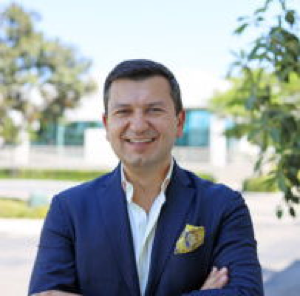
Ali Tinazli
Chief Commercial Officer, Fluxergy
Prior to his role at Fluxergy as Chief Commercial Officer, Dr. Ali Tinazli has been leading the corporate-wide, global strategy for Healthcare and Life Sciences for Hewlett-Packard (HP Inc.) and built a new life sciences business at SONY in his earlier career. He also currently serves as Board Member and Angel Investor at various start-up companies ranging from cybersecurity and digital health to oncology. Dr. Ali Tinazli has a deep background in the science and business of biomedicine and healthcare.
Chairs, Symposium #3

Paolo Bonato
Harvard University
Paolo Bonato, Ph.D., is an Associate Professor in the Department of Physical Medicine and Rehabilitation at Harvard Medical School. He holds adjunct appointments at the MGH Institute of Health Professions, the Wyss Institute for Biologically Inspired Engineering, and Boston University College of Health & Rehabilitation Sciences. He has held Adjunct Faculty positions at MIT, the University of Ireland Galway, and the University of Melbourne. His research work is focused on the development of rehabilitation technologies with special emphasis on wearable technology and robotics. Dr. Bonato currently serves as the Founding Editor-in-Chief of the IEEE Open Journal of Engineering in Medicine and Biology. He served as IEEE EMBS Vice President for Publications (2013-2016). He received an M.S. degree in electrical engineering from Politecnico di Torino, Turin, Italy in 1989 and a Ph.D. degree in biomedical engineering from Universita` di Roma “La Sapienza” in 1995.

Jeff Palmer
Massachusetts Institute of Technology
Jeffrey S. Palmer is the Assistant Head of the Biotechnology and Human Systems Division at Lincoln Laboratory. In this role, he shares responsibility for research, development, evaluation, and technology transfer of advanced technologies and systems for chemical and biological defense, human health & performance, and global resilience to climate, conflict, and disaster threats. Prior to holding this position, he was the leader of the Human Health and Performance Systems Group, which focused on AI-enabled biomedical tools, human performance enhancement, objective neurocognitive analytics, and biosensing via a wearable, ingestible, and implantable devices. He has given presentations at international conferences and authored book chapters and technical articles on DNA biometrics and forensics, biomechanics, cell biology, materials science, soldier nanotechnology, biological-chemical defense, polymer science, high-energy lasers, microelectronics packaging, wearable biomedical sensing in extreme environments, and neurocognitive technologies. He has served on editorial boards for journals in biomechanics, molecular science, biomedical informatics, and biosensors. He has chaired technical conferences for the National Science Foundation, Department of Homeland Security, and the IEEE. Currently, he is the chairman of the IEEE Engineering in Medicine and Biology Society’s Technical Committee on Wearable Biomedical Sensors and Systems and on the editorial board for the IEEE Open Journal of Engineering in Medicine and Biology. In addition, he has served as an advisor on U.S. and NATO military studies for enhancing health and performance and led a multi-agency U.S. government effort to develop automated rapid human DNA analysis capabilities for field biometrics and forensics applications. He currently serves on the faculty for the NIH RADx initiative, a standing committee for the National Academies of Science, Engineering, and Medicine, and as an mHealth study subcommittee co-lead for the Massachusetts General Brigham Center for COVID Innovation. Prior to working at Lincoln Laboratory, he worked at research laboratories at IBM and GE, and at the Physical Sciences Laboratory at New Mexico State University. He holds a bachelor’s degree with a minor in mathematics from New Mexico State University, a master’s degree from Rensselaer Polytechnic Institute, and a doctorate with a minor in bioengineering from MIT, all with majors in mechanical engineering.
Chairs, Symposium #4

Erika Ross
Abbott Neuromodulation
Erika is the Director of R&D Applied Research at Abbott Neuromodulation, leading applied research strategy, external partnerships, portfolio, and execution. Applied research includes computational modeling, pre-clinical, clinical feasibility & safety trials that feed new products and indications. Prior to her role at Abbott, Erika was the Neuroscience Director at Cala Health, a Stanford Biodesign incubated Bay Area start-up that developed a non-invasive, digitally-enabled neuromodulation solution for Essential Tremor patients. She held roles of increasing leadership at Cala Health as the company completed development and prepared for commercialization and played a major role in developing their digital health architecture and team. Prior to Cala Health, Erika held the roles of Assistant Professor of Neurologic Surgery and Deputy Director of the Surgical Device Innovation Accelerator at the Mayo Clinic in Rochester, Minnesota where she developed invasive and non-invasive solutions to unmet needs in the neuromodulation and other surgical practice areas.

Paul Sajda
Columbia University
Paul Sajda is a Professor of Biomedical Engineering, Electrical Engineering and Radiology (Physics) at Columbia University. He is also a Member of Columbia’s Data Science Institute and an Affiliate of the Zuckerman Institute of Mind, Brain and Behavior. He received a BS in electrical engineering from MIT in 1989 and an MSE and PhD in bioengineering from the University of Pennsylvania, in 1992 and 1994, respectively. Professor Sajda is interested in what happens in our brains when we make a rapid decision and, conversely, what processes and representations in our brains drive our underlying preferences and choices, particularly when we are under time pressure. His work in understanding the basic principles of rapid decision-making in the human brain relies on measuring human subject behavior simultaneously with cognitive and physiological state. Important in his approach is his use of machine learning and data analytics to fuse these measurements for predicting behavior and infer brain responses to stimuli. Professor Sajda applies the basic principles he uncovers to construct real-time brain-computer interfaces that are aimed at improving interactions between humans and machines. He is also applying his methodology to understand how deficits in rapid decision-making may underlie and be diagnostic of many types of psychiatric diseases and mental illnesses. Professor Sajda is a co-founder of several neurotechnology companies and works closely with a range of scientists and engineers, including neuroscientists, psychologists, computer scientists, and clinicians. He is a fellow of the IEEE, AMBIE and AAAS and Chair of the IEEE Brain Initiative. He is also a recent recipient of the DoD’s Vannevar Bush Faculty Fellowship (VBFF).
Chair, International Program
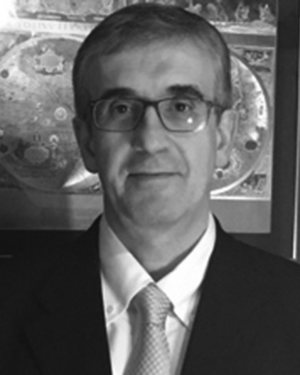
Dimitrios I. Fotiadis
University of Ioannina
Co-Chair, International Program
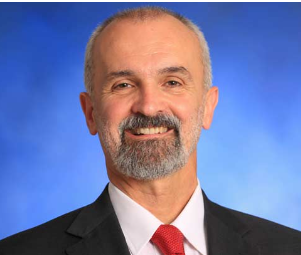
Emil Jovanov
The University of Alabama in Huntsville
Dr. Emil Jovanov is an IEEE Fellow and an Associate Professor in the Electrical and Computer Engineering Department at the University of Alabama in Huntsville. He received his Dipl. Ing. and M.S. degree in Electrical Engineering, and PhD in Computer Engineering from the University of Belgrade. He is recognized as the originator of the concept of wireless body area networks for health monitoring and he is one of the leaders in the field of wearable health monitoring. His research interests include Wearable health monitoring, IoT (Internet of Things), wireless and sensor networks, ubiquitous and mobile computing, and biomedical signal processing. He a member of the Conference Editorial Board and Theme 7 Editor (Biomedical Sensors and Wearable Systems) of IEEE EMBS, and serves as a member of IEEE EMBS Technical Committee on Wearable Biomedical Sensors and Systems, Associate Editor of the IEEE Access, IEEE Open Access Journal of Engineering in Medicine and Biology, IEEE Journal of Biomedical and Health Informatics, and IEEE Transactions on Biomedical Circuits and Systems, and Editorial Board member of Applied Psychophysiology and Biofeedback. Dr. Jovanov received the 2017 IEEE Outstanding Educator Award and the 2014 Innovator of the Year Award.
Publicity and Social Media Promotion Team

Michael Markowycz
Engineering in Medicine and Biology Society

Khanita Duangchaemkarn, Pharm.D
University of Phayao, Thailand

Hans van Oostrom, Ph.D
van Oostrom Consulting

Charlotte Mae K. Waits, Ph.D.
University of Houston

Ting Chen, Ph.D.
University of Houston

Nick Plosko
University of Houston